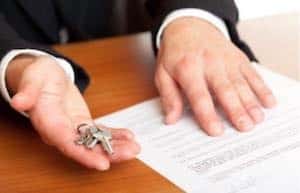Can a Beneficiary Stop the Sale of a Property?

For those wondering “can a beneficiary stop the sale of a property,” the short answer is this: Only if the executor is about to sell the property for less than its fair market value.
An executor appointed by a New York court does not have to seek approval from the beneficiaries. Once the executor is appointed by the court, the executor may act on the authority of New York State law to marshal the assets of the estate, pay debts and expenses and disburse the remainder of the estate to the rightful beneficiaries. That can include a house, bank account, stock portfolio, automobiles, and any other assets of an estate.
An executor is a fiduciary, meaning that he has a duty to exercise the utmost good faith and undivided loyalty toward the beneficiaries throughout the relationship.[1] Does the duty to exercise “good faith and undivided loyalty” include a duty to seek approval from the beneficiaries before selling a house? An executor “must act in accordance with the highest principles of morality, fidelity, loyalty and fair dealing.” [2] Does the executor’s failure to seek the beneficiaries’ approval violate those principles? Probably not. Unless of course, the executor is self-dealing, which is a violation of fiduciary duty.
Selling the house for less than market value for entities controlled by the executor, or getting money “under the table” is embezzlement, or more simply, stealing. If you are suspecting that the executor is trying to sell property for less than market value and you are looking for an attorney, you can contact us at [email protected].
New York Consolidated Laws, Estates, Powers and Trusts Law – EPT § 11-1.6 states that “Every fiduciary shall keep property received as fiduciary separate from his individual property. He shall not invest or deposit such property with any corporation or other person doing business under the banking law, or with any other person or institution, in his own name, but all transactions by him affecting such property shall be in his name as fiduciary.” [3]
New York’s Penal Law (the Criminal Law) states that “A person steals property and commits larceny when, with intent to deprive another of property or to appropriate the same to himself or to a third person, he wrongfully takes, obtains or withholds such property from an owner thereof.” [4]
The estate owns the property. If the executor uses the property to benefit himself at the expense of the beneficiaries, he would be committing embezzlement, which is larceny.
New York Penal Law continues to say that “Larceny includes a wrongful taking, obtaining or withholding of another’s property, with the intent prescribed in subdivision one of this section, committed … by conduct heretofore defined or known as common law larceny by trespassory taking, common-law larceny by trick, embezzlement, or obtaining property by false pretenses.” [5]
Someone who has been nominated as the executor by the will but is not yet appointed by the court does not have the power to sell a house. The law states that “an executor named in a will has no power to dispose of any part of the estate of the testator before letters testamentary or preliminary letters testamentary are granted, except to pay reasonable funeral expenses, nor to interfere with such estate in any manner other than to take such action as is necessary to preserve it. [6]
Can a Beneficiary stop the sale of a property? – In most cases not, but if the executor is unfairly profiting from the sale by getting money under the table or selling the property to himself for less than fair market value, then yes.
We at the Law Offices of Albert Goodwin are here for you. We have offices in New York City, Brooklyn, NY and Queens, NY. You can call us at 212-233-1233 or send us an email at [email protected].
————-
[2] In re Estate of Naumoff, 301 A.D.2d 802, 803, 754 N.Y.S.2d 70 (3d Dep’t 2003)
